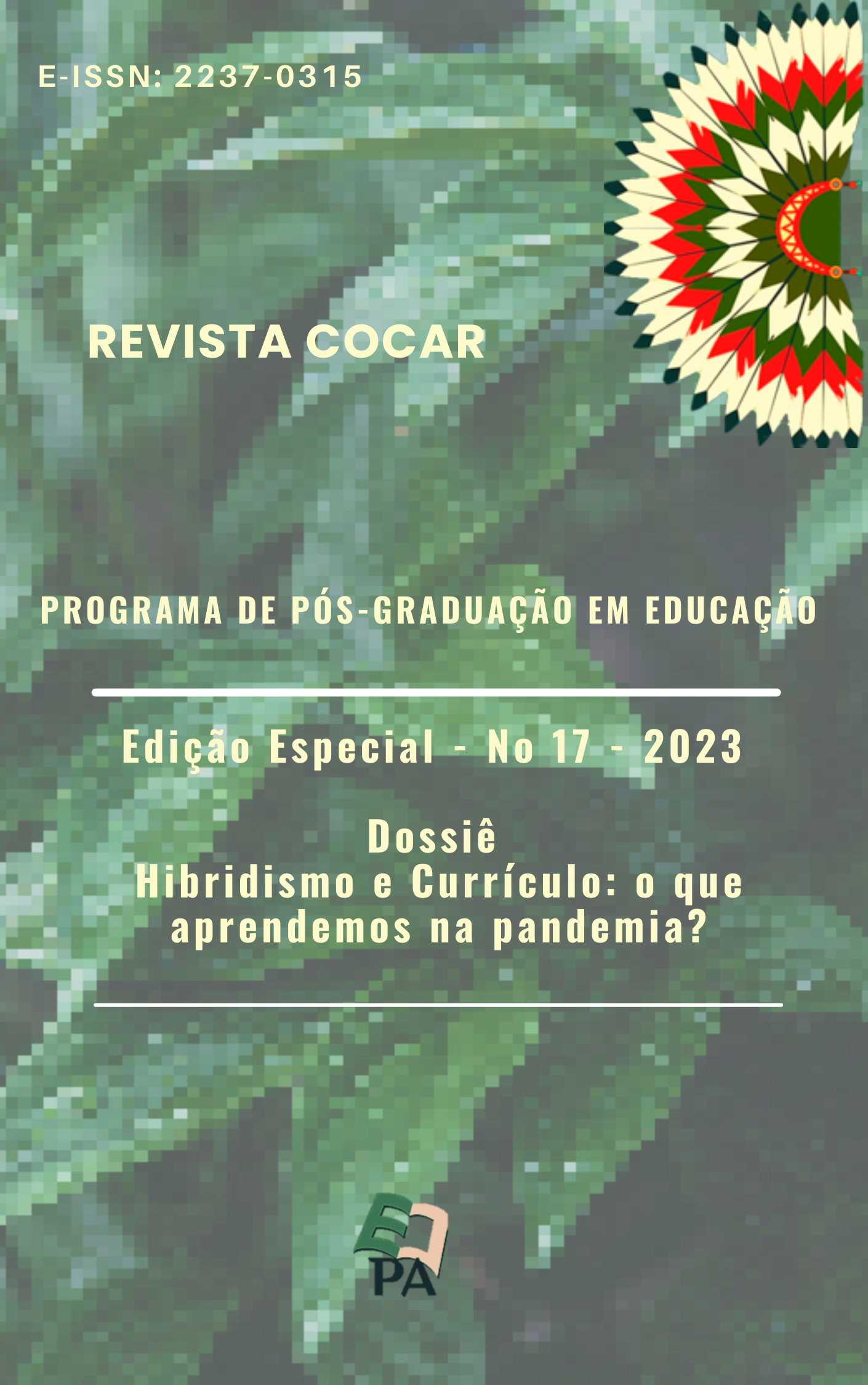Revisitando o conceito de nativos digitais em tempos de pandemia
Revisiting the concept of digital natives in pandemic times
Resumo
Este artigo tem como objetivo revisitar o conceito de nativos digitais (PRENSKY, 2001), buscando possibilidades de validação e/ou contestação da perspectiva de natividade digital. Diante da implementação do ensino remoto, vislumbramos a necessidade de se refletir sobre a concepção de nativos digitais, a partir da teoria de letramento digital atrelado ao uso das TDIC. Para tal, utilizamos a metodologia qualitativa de cunho bibliográfico, para promover a revisão de literatura, realizar a análise e discussão acerca de estudos recentes sobre o domínio e as implicações do letramento digital (PAES; FREITAS, 2020), (RIBEIRO, 2019), (PINHEIRO, 2018) e (GARCIA, 2016). Os resultados preliminares demonstram pontos de divergência entre a referida teoria e o contexto educacional brasileiro, que ainda busca a inserção efetiva das ferramentas tecnológicas nos processos de ensino e aprendizagem.
Palavras-chave: nativos digitais; letramento digital; TDIC; ensino remoto.
Abstract
This paper aims at revisiting the concept of digital natives (PRENSKY, 2001) as we search for possibilities to validate and/or contest the digital nativity perspective disseminated lately. Considering the emergency remote teaching , we recognize the need of reflecting on the concept of digital natives from the digital literacy and technology-based theories. The qualitative bibliographic methodology was used to promote a literature review and then the analysis and discussion of recent studies about the mastering and the implications of digital literacy (PAES, FREITAS, 2020; RIBEIRO, 2019; PINHEIRO, 2018; GARCIA, 2016). Preliminary results demonstrate dissonant points between the theory and the Brazilian educational context that still searches for effective inclusion of technological tools in the teaching/learning processes.
Keywords: digital natives; digital literacy; technology-based theories; remote teaching.
Downloads
Downloads
Publicado
Métricas
Visualizações do artigo: 535 pdf downloads: 259
Como Citar
Edição
Seção
Licença
O envio de qualquer colaboração implica automaticamente a cessão integral dos direitos autorais à Revista Cocar. A Revista não se obriga a devolver os originais das colaborações enviadas.Deprecated: json_decode(): Passing null to parameter #1 ($json) of type string is deprecated in /var/www/html/periodicos/plugins/generic/citations/CitationsPlugin.inc.php on line 49























